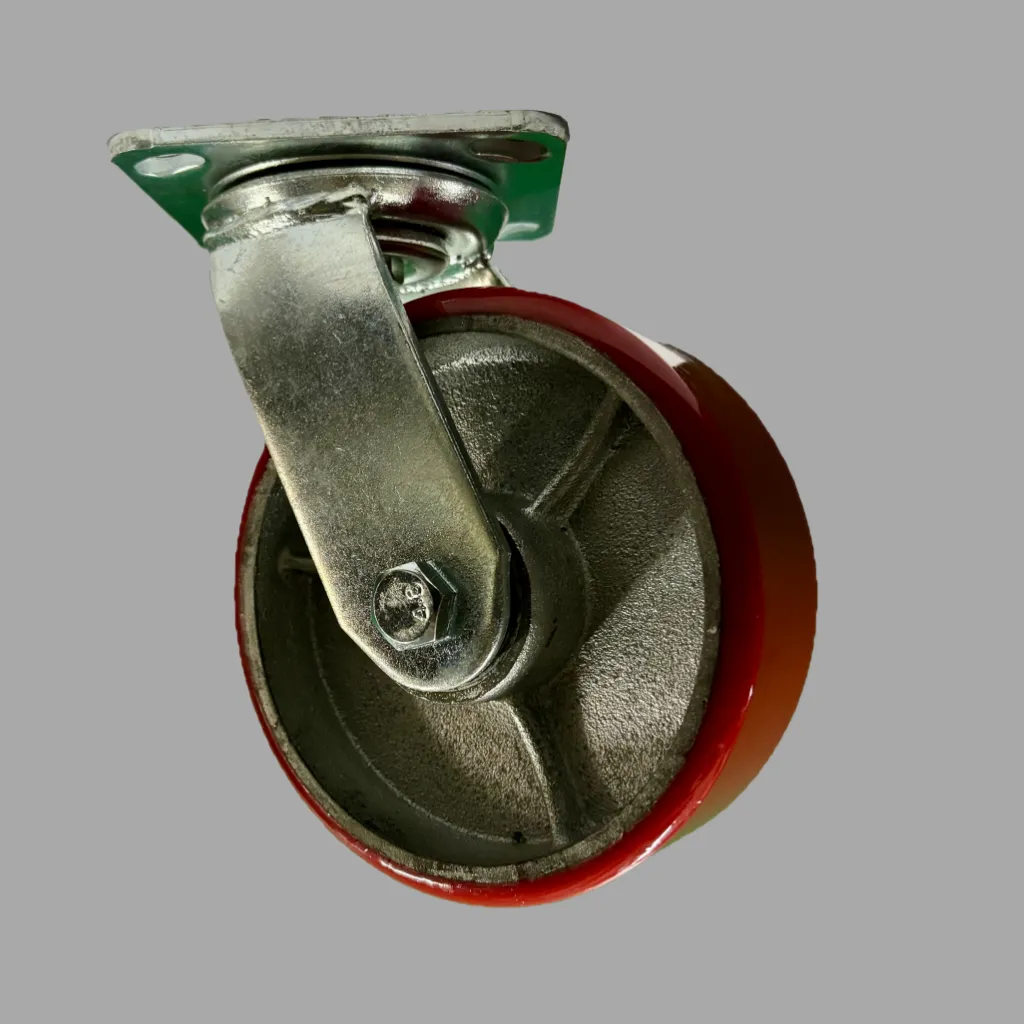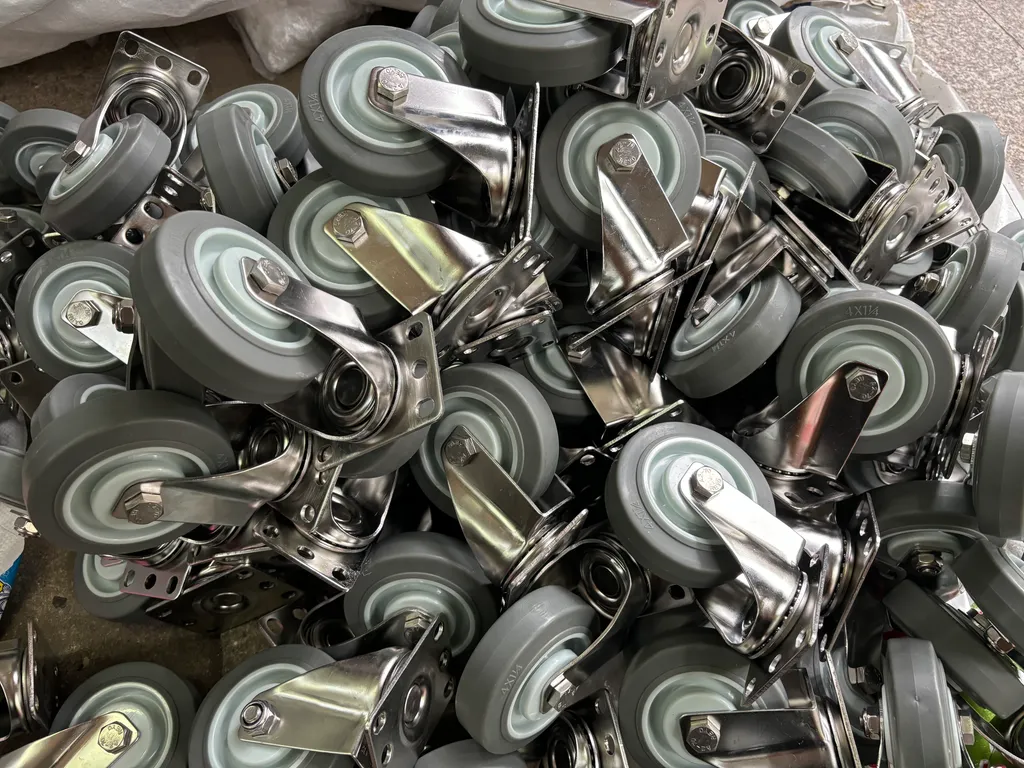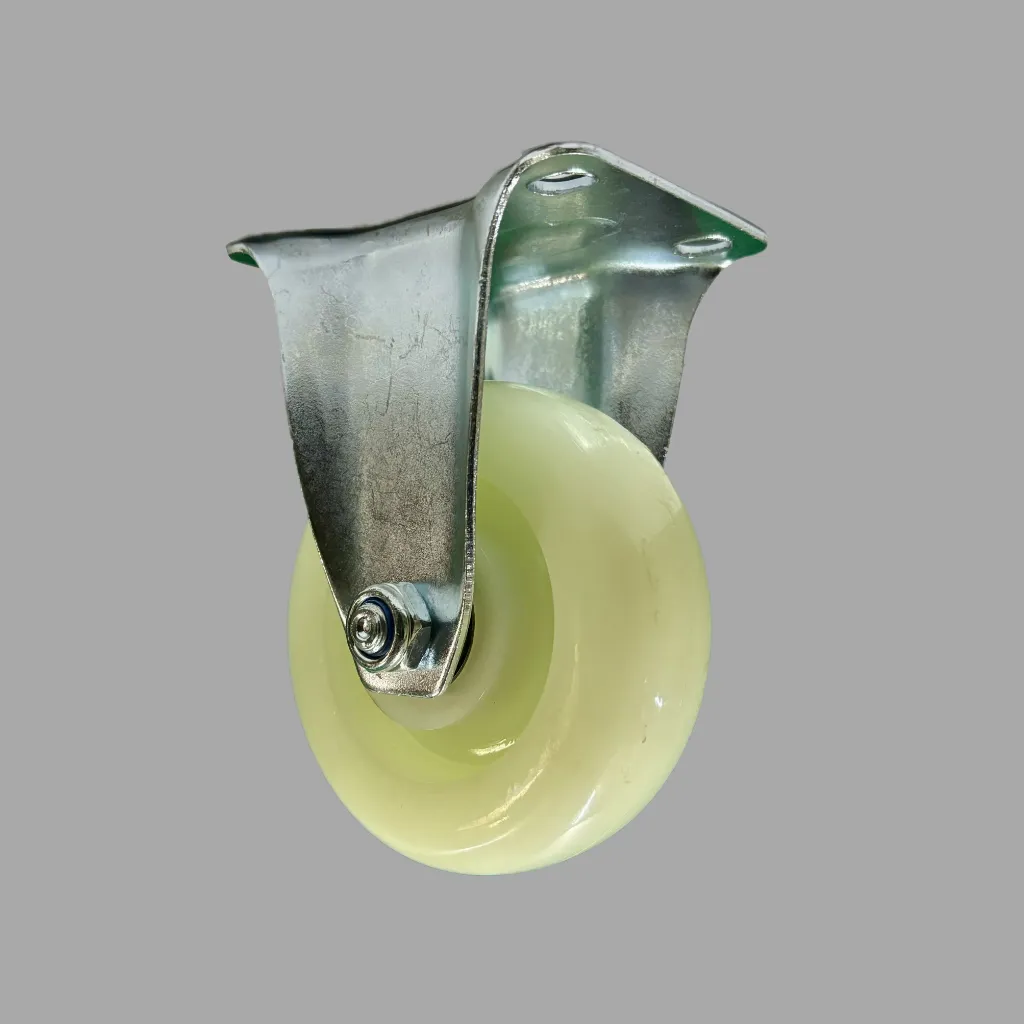Caster Wheel Only/Caster Single Wheel: How to Choose the Right Caster Wheels for Your Needs
Whether you're customizing equipment, replacing worn-out wheels, or simply need a reliable caster solution, this guide will help you navigate the choices available.
What Are Caster Wheels?
Caster wheels are essential components that allow objects and equipment to move smoothly across surfaces. They are used in a wide range of applications, from office chairs to industrial carts, making them vital in both domestic and industrial settings.
Types of Caster Wheels
Understanding the different types of caster wheels is crucial for making the right choice. Here's a breakdown of the most common types:
-
Swivel Caster Wheels
Swivel caster wheels rotate 360 degrees, allowing for maximum maneuverability. They are ideal for applications where flexibility and ease of movement are important, such as in office chairs or hospital beds. -
Rigid Caster Wheels
Unlike swivel wheels, rigid caster wheels only move in a straight line. They are better suited for applications where controlled movement is necessary, such as in assembly lines or heavy machinery. -
Brake Caster Wheels Casters with brakes can secure your equipment once it is in place to prevent it from moving.
Why Choose Only Caster Wheels?
There are several reasons why you might be specifically searching for "caster wheel only":
-
Customization Needs
Sometimes, you need to customize equipment for specific tasks. By choosing only the caster wheels, you can select the exact type, size, and material that fits your unique requirements. -
Replacement and Maintenance
Over time, caster wheels can wear out or become damaged. If the frame or mounting system is still in good condition, replacing only the wheels is a cost-effective solution. -
Cost-Effectiveness
Purchasing only the caster wheels can be more economical, especially if the rest of the assembly is still functional. This approach allows you to extend the life of your equipment without investing in a complete replacement.
How to Choose the Right Caster Wheels
When selecting caster wheels, there are several factors to consider:
- Material Selection
Caster wheels come in various materials, each with its advantages:- Metal: Offers durability and strength, ideal for heavy-duty applications. Like Iron Core Polyurethane Caster Wheel

- Rubber: Provides a smooth, quiet ride and is suitable for both indoor and outdoor use.

- Plastic: Lightweight and resistant to corrosion, making it a good choice for environments where moisture is a concern. Like Nylon Caster Wheel

-
Load Capacity
Determine the maximum weight the caster wheels need to support. Choose wheels that can comfortably handle the load to avoid damage or failure during use. -
Size and Dimensions
The size of the caster wheel affects its performance. Larger wheels roll more easily over obstacles, while smaller wheels offer more precision. Ensure the wheel size matches your specific application needs. -
Environmental Considerations
Consider the environment in which the caster wheels will be used. For example, if the wheels will be exposed to chemicals or extreme temperatures, select materials that can withstand these conditions, such as stainless steel or heat-resistant rubber.
Installing Caster Wheels
Proper installation is key to ensuring the safety and functionality of your caster wheels:
-
Preparation
Before installation, ensure that the equipment and floor surface are clean and free of debris. This will help achieve a secure fit and smooth operation. -
Installation Process
Follow the manufacturer's instructions for installing the caster wheels. Typically, this involves securing the wheels to the base of the equipment using screws or bolts. Make sure the wheels are aligned correctly to avoid uneven movement. -
Post-Installation Check
After installation, test the caster wheels to ensure they are functioning correctly. Check for any wobbling or instability, and make adjustments as needed.
Maintenance and Care of Caster Wheels
Regular maintenance will extend the life of your caster wheels and ensure they continue to perform effectively:
-
Routine Inspections
Check the wheels and bearings regularly for signs of wear, such as cracks, flat spots, or difficulty in rolling. Replace any damaged parts promptly to avoid further damage. -
Cleaning and Lubrication
Keep the wheels clean and free of debris to ensure smooth operation. Lubricate the bearings periodically to reduce friction and prevent rust. -
When to Replace Caster Wheels
If the wheels become difficult to roll, wobble excessively, or show significant wear, it's time to replace them. Choosing high-quality replacement wheels will help maintain the functionality and safety of your equipment.
Conclusion
Choosing the right caster wheels is essential for ensuring the safety and efficiency of your equipment. By considering factors such as material, load capacity, and environmental conditions, you can make an informed decision that enhances the performance and longevity of your caster wheels.
For anyone needing reliable, durable caster wheels, understanding your options and knowing how to properly maintain them is crucial. Choose wisely, and your equipment will roll smoothly for years to come.





